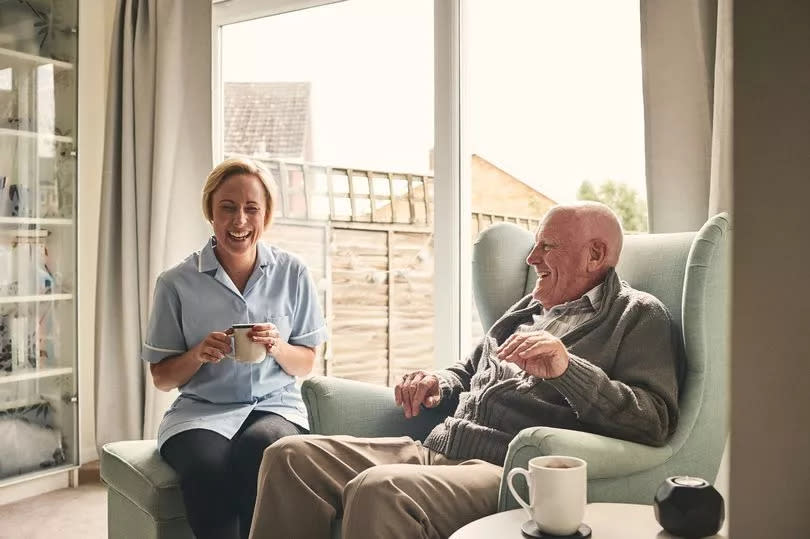DWP offers £2,380 Universal Credit boost to anyone caring for a child, partner or parent

People caring for someone who is disabled could be missing out on a Universal Credit income boost of £2,380. The amount, which is paid monthly and known as Carer Element, is available regardless of how much you earn.
To qualify, you need to be looking after someone with a disability. This could be a child, spouse, partner, parent, relative, neighbour or friend. They must be receiving a disability benefit such as Personal Independence Payment (PIP), Disability Living Allowance (DLA) or Attendance Allowance to qualify as needing someone to care for them.
The Child Poverty Action Group (CPAG) said earlier this year that Universal credit claimants are not always getting extra amounts they are entitled to because of poor data-sharing within the DWP.
Carer Element is paid monthly as an extra amount on top of your Universal Credit and will help offset any deductions made if you also get the separate benefit Carer's Allowance. There are some advantages to claiming both of these carer payments.
READ MORE:
DWP confirms new Carer's Allowance message alerts to reduce overpayments
PIP shake-up will also look at eligibility for Carer's Allowance
DWP one-year cash warning to thousands of households over Universal Credit move
The Universal Credit Carer Element pays £198.31 a month, after going up in April from £185.86. Over 12 months, that amounts to £2,379.72. You can apply for it through your Universal Credit online account by reporting a change in circumstances and selecting the option that you are caring for someone.
If you already receive Carer's Allowance this will have been deducted in full from your Universal Credit payment, meaning you will lose £354.90 a month. Getting £198.31 added on helps to offset some of that.
If you decide to have both carer payments, despite the overlap causing a deduction, it's important to note that Carer's Allowance is paid either weekly in advance or every four weeks, while the Carer Element is paid with your Universal Credit on the same date every calendar month. If you prefer to also have a weekly sum of Carer's Allowance (which would be £81.90) as well as a monthly Universal Credit payment, to help you budget, this could be a good option.
In addition, Carer's Allowance pays Class 1 National Insurance credits whereas Universal Credit pays Class 3 National Insurance credits. Class 1 credits count towards your State Pension and may help you qualify for contribution-based benefits such as New Style Jobseeker's Allowance and New Style Employment and Support Allowance (ESA), while Class 3 credits count towards your State Pension only.
To qualify for Carer's Allowance, you need to spend at least 35 hours a week caring for someone. This can include helping with washing, cooking, shopping and paying bills, as well as taking them to medical appointments. Your earnings must be £151 or less a week after tax, National Insurance and expenses, whereas no income threshold is in place for Universal Credit's Carer Element.
However, as the Carer's Element is a part of Universal Credit, which is a means-tested benefit, your earnings and other income will affect how much Universal Credit you are entitled to receive overall. If you are making a joint claim for Universal Credit as a couple, you can each get a Carer's Element if you both qualify for it but you cannot be caring for the same disabled person.
Getting the Carer's Element of Universal Credit might affect the benefits of the person you care for. It could mean they lose their entitlement to the Severe Disability Premium (SDP) or an extra amount for severe disability paid with their Pension Credit. They might also stop getting Council Tax Support so be sure to check how it will affect their own payments.
If you, your partner, or any children under 18 living with you are claiming Carer's Allowance, you will no longer be affected by the benefit cap. You can apply for Carer's Allowance at the GOV.UK webpage
Get breaking news on BirminghamLive WhatsApp. Join our dedicated community to get the latest updates. You can find out more in our Money Saving Newsletter which is sent out daily with all the updates you need to know on pensions, benefits, finances, bills, and shopping discounts.

 Yahoo News
Yahoo News 
